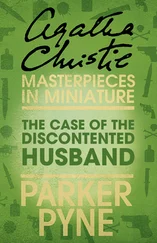Bernice could guess any shoe size without consulting the machine, but it sold shoes and that was a fact. It wasn’t until after Carol had married Pete and quit her job that some men had come and taken it away. Later she heard it had used X-rays, and she shuddered now to think of it. Those nasty rays, or beams or whatever they were, zapping her and all those mothers and little children. How she had survived this long she could never say.
While microwaving her vegetable beef soup at lunchtime, she wished she’d stuck a few people’s heads inside the fluoroscope to see what was what. She could’ve saved herself some trouble and put Gus’s head in there to check for missing parts, like the bit that made a person appreciate what they had. She drew Carol’s business card from her pocket and studied it as she had the shoe styles in the Woodward’s catalogue.
“I’m out of sorts,” she said to Tuan, who lifted his eyes from a thick book split in half on the glass counter. “I’m going home early.”
The pastor had met her decision with less surprise than she’d expected. Bernice feared one of the old mitten ladies would be taking over her store, but the pastor had suggested his niece Tabitha, who’d recently had some sort of difficulty with her family up north in Prince George and was looking to make a new beginning in the city. She’d be fine, Bernice had thought; the store was nothing a young woman with a bit of tenacity couldn’t handle. There really wasn’t much to the job, mostly moving things here and there, when you thought about it. That she’d considered herself the only person capable of doing it seemed to her now an incredible vanity.
First she took apart her bed and dragged the pieces to the door. Then she began filling boxes with things and stacking them against the wall over the rectangle of darker wood where her bed had sat for nearly thirty years. She fought the urge to keep her collection organized, tossing it willy-nilly into the boxes, mixing even the owls and nautical items together. Next she moved into the living room, where she teetered on a chair to lift her pictures from the walls. The dishes she wrapped in the weekly fliers that had piled for years in the hall closet. In the end, she’d decided to keep only the spoon rack and her very best items of clothing — many of them Woodward’s brand — and these she packed in just two suitcases and set them near the door of her empty apartment. The rest she marked for donation. It astonished her that it had taken only two days to pack her entire apartment.
Tuan and another young fellow with blue hair and metal bits hung in his face came and loaded the boxes and furniture into the van. The few odds and ends that didn’t fit, including an old oak desk that Gus used to write his poetry on, she was forced to leave in the alley for the men with shopping carts.
Bernice rode between them to the thrift store, where she was meeting Wanda and Brian later that night for them to take her to Kelowna. As they drove, the blue-haired fellow sang along to the stereo and Bernice swore she heard the word Jesus. Amidst the noisy jangle of the rock and roll it sounded like a swear.
Tuan curved the van into an alley and they approached the rear entrance of the church. Then she watched Tuan carry her boxes inside, struck by the awareness that others would be taking items from her collection home and soon using them as their own. The mitten ladies had organized a going-away party and it would be starting in a few minutes, but Bernice already wanted to leave.
Later that afternoon, Bernice stepped from the chattering heat of the party for some air and was drawn by the low roar of human voices from a few blocks over. As she approached Abbott Street, she thought it was a protest march, but then she saw that no part of the crowd was moving. Hotdog trucks and trucks with satellite dishes strapped to their roofs stood by. The sidewalks around the old department store were barricaded off by high fences and large metal containers that looked like train cars lacking wheels. The surrounding streets were crammed with people who all seemed to be searching the red brickwork of the old department store for clues to a mystery.
She pushed deeper into the swarm. Bodies pressed against her. She could see the plywood had been removed from the windows and that there was nothing left inside, the store entirely gutted. Children were riding their parents’ shoulders like lumbering elephants; people carried roughly scrawled signs she couldn’t make out without her glasses, and still others aimed tiny movie cameras, lifting them over their heads as if in choreographed salute. It cheered her to see so many people back on this block again, especially people who took care of themselves, people with jobs and children and cameras.
She found a bit of space out front of a soup kitchen, stepping up on the curb for a better view — of what she wasn’t yet sure. Beside her stood a young woman, patches crudely pinned and sewn on her clothing as if to suggest a lack of concern for her own appearance, or perhaps appearances in general. The woman turned to her and shrugged as if she too were confused by the spectacle. Her easy, dejected way of holding herself reminded Bernice of her sister at her age. The girl’s feet were a size seven and a half.
Then came seven loud blasts from an air horn, silencing the crowd. A distorted voice began counting down from ten. The young woman stuck her fingers in her ears. When the count ended, the voice said “Go,” and there were fourteen explosions — she counted — that seemed to chase each other around the structure. She saw flocks of birds, mostly pigeons and crows, launch from the empty windows of the upper levels and she felt great pity for them, knowing there’d be nests and lame birds left behind in the store. Her heart dropped as if her chest were a carnival dunk tank. She felt her hand cover her mouth, and when the explosions ended there came a short pause in which Bernice turned to the young woman, who she saw, also stunned, was timidly pulling her fingers from her ears. For a moment Bernice wondered if there had been some kind of miscalculation, right before a series of greater explosions erupted, triple the power of the ones that still hung webs in her ears, and the structure became liquid and began to fold in on itself, slumping like a set of clothes without a body to keep them standing. In a dense oatmeal cloud, dust and bits of the building rose into the air and enveloped the now cheering and whooping crowd. She brought her silk scarf to her mouth and breathed through it, the dusty odour reminding her of her closet now all emptied out and awaiting the clothes of another. She felt a hand she knew to be the young woman’s grip her own, and found herself hoping she was one of the young people who would live in the new apartments they would be building here, and they stood like this, immobile, blinded by dust, in the cacophony of car alarms that seemed to be setting each other off, spreading across the city, block by block.
Me and Rick, we rent a basement suite at the bottom of Baldev’s house. Actually, we only call it that to Welfare so they’ll give us the most amount of money for rent, but really it’s just a basement, no suite part. The walls are two-by-fours with cotton candy in between and there’s no toilet or sink and it smells bad like your wrist when you leave your watch on too long. We sleep on hunks of foam beside the furnace between an orange lawnmower and used cans of paint that Baldev keeps down there. We take dumps at the gas station down the street and pee in plastic jugs we pour down a drain in the alley. Then at the tap on the side of the house, we rinse them and fill them for drinking and washing our pits and crotches. We used to have different jugs but then we got tired of remembering which was which.
Читать дальше












